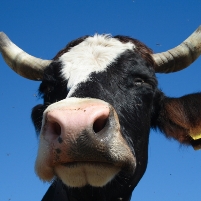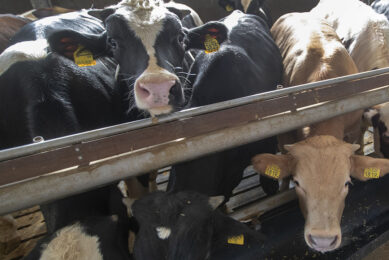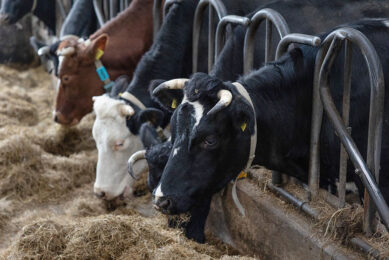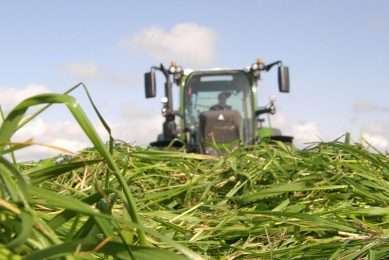Bark cuts methane emission from cows

The Department of Primary Industries (DPI) staff jointly with University of Melbourne scientists have made a breakthrough in reducing bovine emissions by feeding an extract from the bark of black wattle (Acacia mollisima ).
The scientists found that feeding the crystallised
powder not only reduced methans but also nitrogen emissions, and increased milk
production.
DPI “Greenhouse in Agriculture” team leader Dr Richard Eckard said in an
interview “A tannin in the bark combined with nitrogen in the rumen making it
easier to digest and giving more benefit to the animal. The nitrogen goes out in
the dung and then released slowly into the environment. The tannin stopped the
nitrogen going into the bloodstream, where the animal had to work hard to
process it.
Easy way to feed
The cattle might spend
the energy equivalent of one litre to 1½ litres of milk to excrete the nitrogen
in their urine. There is evidence that tannis reduced methane and it was now
necessary to develop a method easily to feed the supplement to the cattle. We
were giving it to them in two big doses a day, but that was affecting milk
production.
A problem that there were no commercial suppliers of the
supplement in Australia and we are importing it from Brazil or South Africa
where it is used to tan leather.” Dr Eckard added that feeding Australian
animals cysteine, an amino acid, and nitrate would not have the same success
here as in Japan, where researchers at Obihiro University in Hokkaido found that
dairy cattle consuming large amounts of nitrate released only trace amounts of
methane when they belched.
The researchers found that adding cysteine in
addition to the nitrate cut methane emissions and prevented nitrate poisoning.
Dr Eckard said however, there was generally too much nitrate in Australian
pastures. The team also had some success in reducing methane by feeding oil
supplements to the cattle.
Related websites:
Department of Primary
Industries
University of Melbourne
Related folder:
Dossier
AllAbout Plant Extracts











